
THE WITCHER

Born from Foul Sorcery to Hunt Evil
"No knight he, though a master of the sword. No wizard he, though adept in secret magic. He did not care to save the world, yet for many he was a deliverer. He was no murderer though he killed for a living. The legend of him that arose is not over." - The Witcher
Class Design by:
Andrew Raleigh

For Personal Use Only. Not for resale.
/** Original coversheet layout design by Andrew Rowley **/
Witcher
A whirlwind of fangs and claws lash out at a human male as he effortlessly parries away each attack with his silvered longsword in hand. In a flash, the man lunges forward, bringing his blade across the belly of the werewolf. The creature buckles and howls as it falls to the ground. The witcher swings back, brining the point of his sword down upon the beast, ending the howls in an instant.
Reciting aloud the memorized formulas she had learned since she was a child, a female half-elf begins preparing a noxious brew. If done correctly, it could give her the edge she needs to fell her query. But one mishap and it could end her in a moment.
Yellow eyes like that of a cat, a halfling peers through the darkness of night. The scent of a troll is fresh. Broken limbs of trees point him in the direction he needs to track. It is just a matter of time now before he collects the sizable bounty on its head.
Mutated Hunters on the Path
The life of a witcher is seldom one of little report. Fabled and legendary monster hunters, trained by the best warriors, they are the first line of defense between society and destruction.
The Path leads witchers to the pursuit of seeking out contracts, and killing any monster. This lifestyle doesn't offer the comforts many would want in life. As such, these men and women often find themselves isolated and alone. The life of a hunter is one that requires a witcher to be constantly on the move. Emotional attachments can at times be seen as distractions for some witchers.
Once Man, Now Monster
Many have heard tales of witchers as mutants with no soul, and are seen by some as no better than the monsters they hunt. The commoner's perceptions of witchers vary from town to town. Those who have been saved by a witcher might sing their praises, until they have to pay up for their services.
Undergoing a barbaric procedure known as the Trial of Glasses, few survived such an ordeal. The process of mutating children into what would become witchers, is a horrific scene with long lasting side effects: such as sterility, and to some degree, a loss of emotions. Other mutations may be less apparent. Some schools, like that of the cat, are known for their hyper aggression from their mutagens instead of emotionlessness.
Knights to No King
As a witcher, you are independent, contract based monster hunter. Often, children of no real lineage worth mentioning are seen as common rabble. Witchers often take the name of a land to give the appearance of knighthood.
While on your journey, you may take the pseudonym of a surname to establish some renown for yourself. This surname, be it 'of Irena' for instance, needn't be that you were born in the land of Irena nor have been knighted by royalty from that land.
Creating a Witcher
When you create a witcher, you will have to keep in mind two elements: how they gained their witcher abilities, and how society views them. Most witchers choose to follow the Path alone, although, some do seek out companionship from those they deem worthy. To be a witcher you must ask yourself, how did I gain these abilities? Were you raised since childbirth at a witcher keep, such as the School of the Wolf's Kaer Morhen? Were you abandoned, or even bartered for goods to be taken in as a ward for a witcher? Were you displaced due to the wanton destruction of your homeland and found refuge among the witchers?
Whatever your story is, it leads you to the Path, a way that all witchers must follow down. Seeking the Path is the purpose of a witcher: to hunt down and slay monsters where'er they may be.
Quick Build
You can make a witcher quickly by following these suggestions. First, Dexterity or Strength should be your highest ability, followed by Wisdom. Second, choose the hermit or haunted one background. Third, choose the aard and igni cantrips

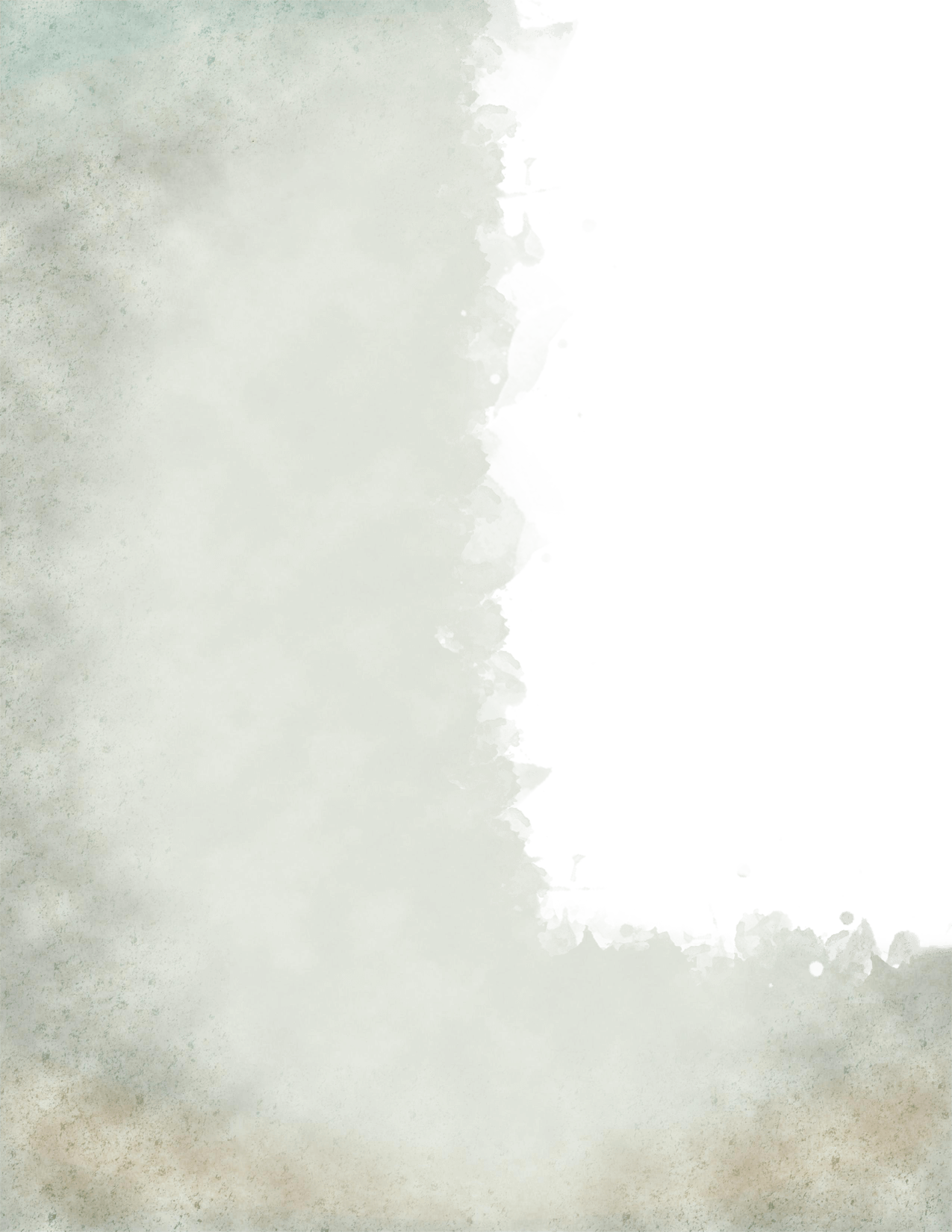


The Witcher
| Level | Proficiency Bonus | Features | Signs Known | Vigor Points | Martial Die |
|---|---|---|---|---|---|
| 1st | +2 | Mutagens, Witcher School | — | — | — |
| 2nd | +2 | Fighting Style, Martial Supremacy, Signs, Vigor | 2 | 4 | 1d4 |
| 3rd | +2 | Alchemist Adept | 2 | 5 | 1d4 |
| 4th | +2 | Ability Score Improvement | 2 | 6 | 1d4 |
| 5th | +3 | Extra Attack | 2 | 7 | 1d6 |
| 6th | +3 | Witcher School Feature | 3 | 10 | 1d6 |
| 7th | +3 | Vigilant, Greater Mutagens | 3 | 11 | 1d6 |
| 8th | +3 | Ability Score Improvement | 3 | 12 | 1d6 |
| 9th | +4 | Witcher School Feature | 3 | 13 | 1d6 |
| 10th | +4 | Ability Score Improvement | 4 | 16 | 1d6 |
| 11th | +4 | Combat Signs | 4 | 17 | 1d8 |
| 12th | +4 | Ability Score Improvement | 4 | 18 | 1d8 |
| 13th | +5 | Extra Attack (2) | 4 | 19 | 1d8 |
| 14th | +5 | Witcher School Feature | 4 | 20 | 1d8 |
| 15th | +5 | Relentless | 5 | 25 | 1d8 |
| 16th | +5 | Ability Score Improvement | 5 | 26 | 1d8 |
| 17th | +6 | Witcher School Feature | 5 | 27 | 1d10 |
| 18th | +6 | Superior Mutagens | 5 | 28 | 1d10 |
| 19th | +6 | Ability Score Improvement | 5 | 29 | 1d10 |
| 20th | +6 | Grandmaster | 5 | 30 | 1d10 |


Class Features
As a witcher, you gain the following class features
Hit Points
- Hit Dice: 1d10 per witcher level
- Hit Points at 1st Level: 10 + your Constitution modifier
- Hit Points at Higher Levels: 1d10 (or 6) + your Constitution modifier per witcher level after 1st
Proficiencies
- Armor: Light armor
- Weapons: Simple weapons, martial weapons
- Tools: Alchemist's supplies
- Saving Throws: Constitution, Strength
- Skills: Choose three from Arcana, Animal Handling, Athletics, Insight, Investigation, Nature, Perception, Stealth, and Survival
Equipment
You start with the following equipment, in addition to the equipment granted by your background:
- (a) leather armor (b) padded armor
- (a) two longswords (b) one martial or simple weapon
- (a) a dungeoneer’s pack or (b) an explorer’s pack
- A hand crossbow and 20 bolts
Mutagens
Having been raised since childhood for a singular purpose in life, to hunt down monstrous creatures, you have undergone a number of horrifying mutagenic procedures that have long stripped you much of your emotions, but also some level of who you used to be.
Starting at 1st level, you gain the following benefits.
- Your eyes now take on the appearance that of a cat's, yellow in color, and slitted. You gain darkvision out to a range of 60 feet. If you already have darkvision from your race, its range increases by 30 feet.
- You needn't sleep any more if your race requires it. Instead, you meditate deeply, remaining semiconscious, for 4 hours a day. While meditating, you can dream after a fashion; such dreams are actually mental exercises that have become reflexive through years of practice. After resting in this way, you gain the same benefit that a human does from 8 hours of sleep.
- You gain resilience to poisons and concoctions that would kill a lesser being. You have advantage on saving throws against poison, and you have resistance against poison damage (explained in the “Combat” section of the PHB).
- Your body begins to age at a reduced rate. For every 2 years that pass, your body ages only 1.
- Your body develops a number of weird quirks, such as pigmentless hair or skin. You may lose scales, claws, feathers, or a number of other racial traits. Discuss with your GM about these abnormalities. Whatever you choose, the mutation process you underwent caused your body to react in a visual manner, leaving it apparent that you are different from the rest of your kind.
- Some school's mutations offer strange quirks such as the school of the cat's hyperaggressive nature, the reclusiveness of the bear, or just simply a lack of emotions.
Witcher Schools
Dedicated to the art of hunting, studying, and killing all manner of uncouth creatures, be it demonic, supernatural, or bestial, witcher schools train, arm, and raise witchers. Typically taken in as orphans or unwanted children, these youths are given to schools that specialize in various arts of the hunt, each with their own take on the Path.
Choose a witcher school, which describes the training and lifestyle you endured to become a full-fledged witcher: Bear, Cat, Griffin, Manticore, Wolf, Viper.
Your choice grants you features when you choose it at 1st level and again at 6th, 9th, 14th, and 17th level.
Fighting Style
At 2nd level, you adopt a particular style of fighting as your specialty. Choose one of the following options.
You can’t take a Fighting Style option more than once, even if you later get to choose again.
Archery. You gain a +2 bonus to attack rolls you make with ranged weapons.
Defense. While you are wearing armor, you gain a +1 bonus to AC.
Dueling. When you are wielding a melee weapon in one hand and no other weapons, you gain a +2 bonus to damage rolls with that weapon.
Great Weapon Fighting. When you roll a 1 or 2 on a damage die for an attack you make with a melee weapon that you are wielding with two hands, you can reroll the die and must use the new roll, even if the new roll is a 1 or a 2. The weapon must have the two-handed or versatile property for you to gain this benefit.
Protection – Two Handed Weapon. When a creature you can see attacks a target other than you that is within reach of you, you can use your reaction to impose disadvantage on the attack roll. You must be wielding a melee weapon that has the two-handed or versatile property, and you are wielding that weapon with two hands.
Martial Supremacy
At 2nd level, you learn maneuvers that are fueled by special dice called martial dice.
Maneuvers. You learn two maneuvers of your choice, which are chosen from the list of maneuvers available to fighters with the Battle Master archetype, as listed below. Many maneuvers enhance an attack in some way. You can use only one maneuver per attack.
You learn one additional maneuver of your choice at 5th, 11th, and 17th levels. Each time you learn a new maneuver, you can also replace one maneuver you know with a different one.
Martial Dice. You have a number of martial dice that you can expend from your vigor points, which are d4s. A vigor point is expended when you use it. You regain all of your expended vigor points when you finish a long rest.
At 5th level, your martial dice turn into d6s. At 11th level, they turn into d8s, and at 17th level, they turn into d10s.
You can use this feature in this way a number of times equal to your Wisdom modifier (minimum of 1). You regain all expended uses once you complete a long rest.
Maneuver Save DC
Maneuvers
The maneuvers are presented in alphabetical order.
Disarming Attack. When you hit a creature with a weapon attack, you can expend one martial die to attempt to disarm the target, forcing it to drop one item of your choice that it’s holding. You add the martial die to the attack’s damage roll, and the target must make a Strength saving throw. On a failed save, it drops the object you choose. The object lands at its feet.
Distracting Strike. When you hit a creature with a weapon attack, you can expend one martial die to distract the creature, giving your allies an opening. You add the martial die to the attack’s damage roll. The next attack roll against the target by an attacker other than you has advantage if the attack is made before the start of your next turn.
Evasive Footwork. When you move, you can expend one martial die, rolling the die and adding the number rolled to your AC until you stop moving.
Feinting Attack. You can expend one martial die and use a bonus action on your turn to feint, choosing one creature within 5 feet of you as your target. You have advantage on your next attack roll against that creature this turn. If that attack hits, add the martial die to the attack’s damage roll.
Goading Attack. When you hit a creature with a weapon attack, you can expend one martial die to attempt to goad the target into attacking you. You add the martial die to the attack’s damage roll, and the target must make a Wisdom saving throw. On a failed save, the target has disadvantage on all attack rolls against targets other than you until the end of your next turn.
Menacing Attack. When you hit a creature with a weapon attack, you can expend one martial die to attempt to frighten the target. You add the superiority die to the attack’s damage roll, and the target must make a Wisdom saving throw. On a failed save, it is frightened of you until the end of your next turn.
Parry. When another creature damages you with a melee attack, you can use your reaction and expend one martial die to reduce the damage by the number you roll on your martial die + your Dexterity modifier.
Precision Attack. When you make a weapon attack roll against a creature, you can expend one martial die to add it to the roll. You can use this maneuver before or after making the attack roll, but before any effects of the attack are applied.
Pushing Attack. When you hit a creature with a weapon attack, you can expend one martial die to attempt to drive the target back. You add the superiority die to the attack’s damage roll, and if the target is Large or smaller, it must make a Strength saving throw. On a failed save, you push the target up to 15 feet away from you.
Riposte. When a creature misses you with a melee attack, you can use your reaction and expend one martial die to make a melee weapon attack against the creature. If you hit, you add the martial die to the attack’s damage roll.
Sweeping Attack. When you hit a creature with a melee weapon attack, you can expend one martial die to attempt to damage another creature with the same attack. Choose another creature within 5 feet of the original target and within your reach. If the original attack roll would hit the second creature, it takes damage equal to the number you roll on your martial die. The damage is of the same type dealt by the original attack.
Trip Attack. When you hit a creature with a weapon attack, you can expend one martial die to attempt to knock the target down. You add the martial die to the attack’s damage roll, and if the target is Large or smaller, it must make a Strength saving throw. On a failed save, you knock the target prone.
Signs
As a being of unnatural abilities, you have been taught how to harness simple magical abilities that you can cast without the need of spell components. These spells are referred to as Signs and when cast at their lowest level, they act as cantrips for you. See chapter 10 in the Player's Handbook for the general rules of spellcasting and the end of the class description for the witcher spell list.
Cantrips
At 2nd level, you know two cantrips (which are referred to as signs) of your choice from the witcher spell list. You learn additional witcher cantrips of your choice at higher levels, as shown in the Signs Known column of the Witcher table.
Casting a sign as a cantrip, such as using the igni cantrip, does not requires you to expend a vigor point in order to cast.
Casting Signs
Some signs allow you to cast spells. See the Spellcasting section for the general rules of spellcasting. To cast one of these spells, you use its casting time and other rules, but you don’t need to provide material components for it.
Once you reach 5th level in this class, you can spend vigor points to increase the level of a signs, or modify how it acts. When you cast a sign, provided that the sign has an enhanced effect at a higher level, as burning hands does, the spell’s level increases by 1 for each additional vigor point you spend. For example, if you are a 5th-level witcher and use igni to cast burning hands, you can spend 3 vigor points to cast it as a 2nd-level spell (the sign’s base cost of 2 vigor points + 1).
The maximum number of vigor points you can spend to cast a spell in this way (including its base vigor point cost and any additional vigor points you spend to increase its level) is determined by your witcher level, as shown in the Signs and Vigor Points table.
Casting a sign while expending a number of vigor points modifies how the spell is cast in this manner. For instance, the Quen cantrip takes an action to cast. At 2nd level, you can instead use your reaction, and expend an additional vigor point, to cast it as if you had cast absorb elements.
When you gain access to a cantrip as your level increases, you gain access to all spells denoted by that same cantrip (but you cannot cast any above your Maximum Vigor Point for a Sign). For example, a 5th level witcher with the cantrips Axii and igni would be able to cast spells that are denoted in the Witcher Spell List, but not from any spell with another cantrip as the denoting requirement.
Signs and Vigor Points
| Witcher Levels | Maximum Vigor Points for a Sign |
|---|---|
| 2nd–4th | 2 |
| 5th–8th | 3 |
| 9th–12th | 4 |
| 13th–16th | 5 |
| 17th–20th | 6 (School of the Griffin only) |
Vigor
Vigor is the measure of unlocked magical potential gained by witchers through the introduction of mutagens. Instead of spell slots, this class feature grants access to spells in a new manner, albeit to a limited degree.
Starting at 2nd level, your training allows you to harness might of your vigor. Your access to this energy is represented by a number of vigor points. Your witcher level determines the number of points you have, as shown in the Vigor Points column of the Witcher table.
You can spend these points to fuel various vigor features or spells. You start knowing two such features: Signs and Maneuvers.
When you spend a vigor point, it is unavailable until you finish a long rest, at the end of which you regain of your expended vigor points. You must spend at least 4 hours of the rest meditating to regain your vigor points.
Some of your vigor features require your target to make a saving throw to resist the feature’s effects. The saving throw DC is calculated as follows:
Sign Save DC
Sign attack modifier
Alchemist Adept
Starting at 3rd level, you gain powerful new formulas in which you can develop in order to help you in your endeavors. You can create one formula during a long rest. This alchemical formula is a special potion with unique properties. The potency of this formula lasts for 24 hours. It highly toxic to any other living creature who hasn't undergone such mutagenic changes to resist them. Another creature that attempts to consume this potion must make a Constitution saving throw of a DC 20 or take 10d12 poison damage and is poisoned for the next 24 hours.
Only witchers can gain the benefits of these formulas. Any other creature gains the side effects only.
If presented to an NPC, they will not willing consume a potion created from this feature. If forced to consume it, they will vomit it back up and suffer only a mild discomfort as its side effect.
Consuming an alchemical formula that you created using this feature grants temporary benefits, as well as some temporary side effects. The duration of these effects last for 1 hour upon ingestion.
To craft a formula, you must meet the required witcher level, have access to alchemist supply's, and have the formula learned.
You know one formula, and learn an additional formula at 5th, 11th, and 18th levels. Additionally, when you gain a new formula, you can choose one of the formulas you already know and replace it with another formula.
At 11th level, you can craft a second formula during a long rest, but you can only gain the benefits of one formula at a time.
Formulas
The formulas are presented in alphabetical order.
Bindleweed. You gain resistance to acid damage.
Side effect: You gain vulnerability to cold damage.
Black Blood. When a creature, such as a vampire, makes a bite attack against you, you are immune to necrotic damage from the bite, as well as the creature instead takes 2d6 poison damage. You automatically succeed any Constitution saving throw that would have been imposed from a bite attack. (Requires 5th level)
Side effect: You make Constitution saving throws with disadvantage.
Cat. You can see normally in darkness, both magical and nonmagical, to a distance of 120 feet. (Requires 11th level)
Side effect: You gain sunlight sensitivity: You have disadvantage on attack rolls and on Wisdom (Perception) checks that rely on sight when you, the target of your attack, or whatever you are trying to perceive is in direct sunlight.
De Vries’ Extract. You see invisible creatures and objects as if they were visible. (Requires 11th Level)
Side Effect: You roll initiative with disadvantage.
Full Moon. Your hit points maximize.
Side effects: You lose the use of darkvision.
Golden Oriole. You gain immunity to poison and the poisoned condition.
Side effect: You become vulnerable to fire damage.
Kiss. You gain resistance to slashing damage.
Side effect: You gain vulnerability to bludgeoning damage.
Maribor Forest. You gain temporary hit points equal to your Wisdom modifier (minimum of 1) times 5, as well as at the end of short rests. (Requires 11th Level)
Side effect: You make all Wisdom checks with disadvantage.
Rush. Your walking speed increases by 10 feet.
Side effect: You make Wisdom (Perception) checks with disadvantage.
Shrike. Hostile creatures that hit you with a melee attack takes 1d6 force damage while your Quen cantrip is active. (Requires 5th Level)
Side effects: Your Constitution modifier is reduced by 1.
Swallow. You can reroll any 1s or 2s that you roll when you expend a witcher hit die during a during a short rest to regain hit points. You must new the new number rolled.
Side effects. Your walking speed is reduced by 5 feet.
Thunderbolt. You add your Wisdom modifier (minimum of + 1) to the damage of your weapon attacks. (Requires 11th Level)
Side effect. Attacks against you are made with advantage.
Willow. Grants immunity to the stunned condition and from being knocked prone.
Side effect. You lose the ability to take Attacks of Opportunity.
Wolf. Your weapon attacks score a critical hit on a roll of 19 or 20. (Requires 11th Level)
Side effect. You take a -2 penalty to AC.
Ability Score Improvement
When you reach 4th level, and again at 8th, 10th, 12th, 16th, and 19th level, you can increase one ability score of your choice by 2, or you can increase two ability scores of your choice by 1. As normal, you can’t increase an ability score above 20 using this feature.
Using the optional feats rule, you can forgo taking this feature to take a feat of your choice instead.
Extra Attack
Beginning at 5th level, you can attack twice, instead of once, whenever you take the Attack action on your turn.
The number of attacks increases to three when you reach 13th level in this class.
Vigilant
When you reach 7th level, you've learned how to remain constantly on the lookout for danger. You can't be surprised, instead, you roll initiative and can act on the same turn as your ambushers as long as you are not incapacitated or unconscious. Meditation does not count as unconsciousness for you.
Greater Mutagens
Your mutagens continue to grow stronger as you continue on the Path. When you reach 7th level, you gain the keen senses trait like that of a beast. You have advantage on Wisdom (Perception) checks that rely on hearing or smell, as well as Wisdom (Survival) checks against targets that you're tracking.
Combat Signs
Beginning at 11th level, when you use your action to cast a cantrip (limit of 1 vigor point expended), you can make one weapon attack as a bonus action.
Extra Attack
Beginning at 13th level, you can attack three times, instead of twice, whenever you take the Attack action on your turn.
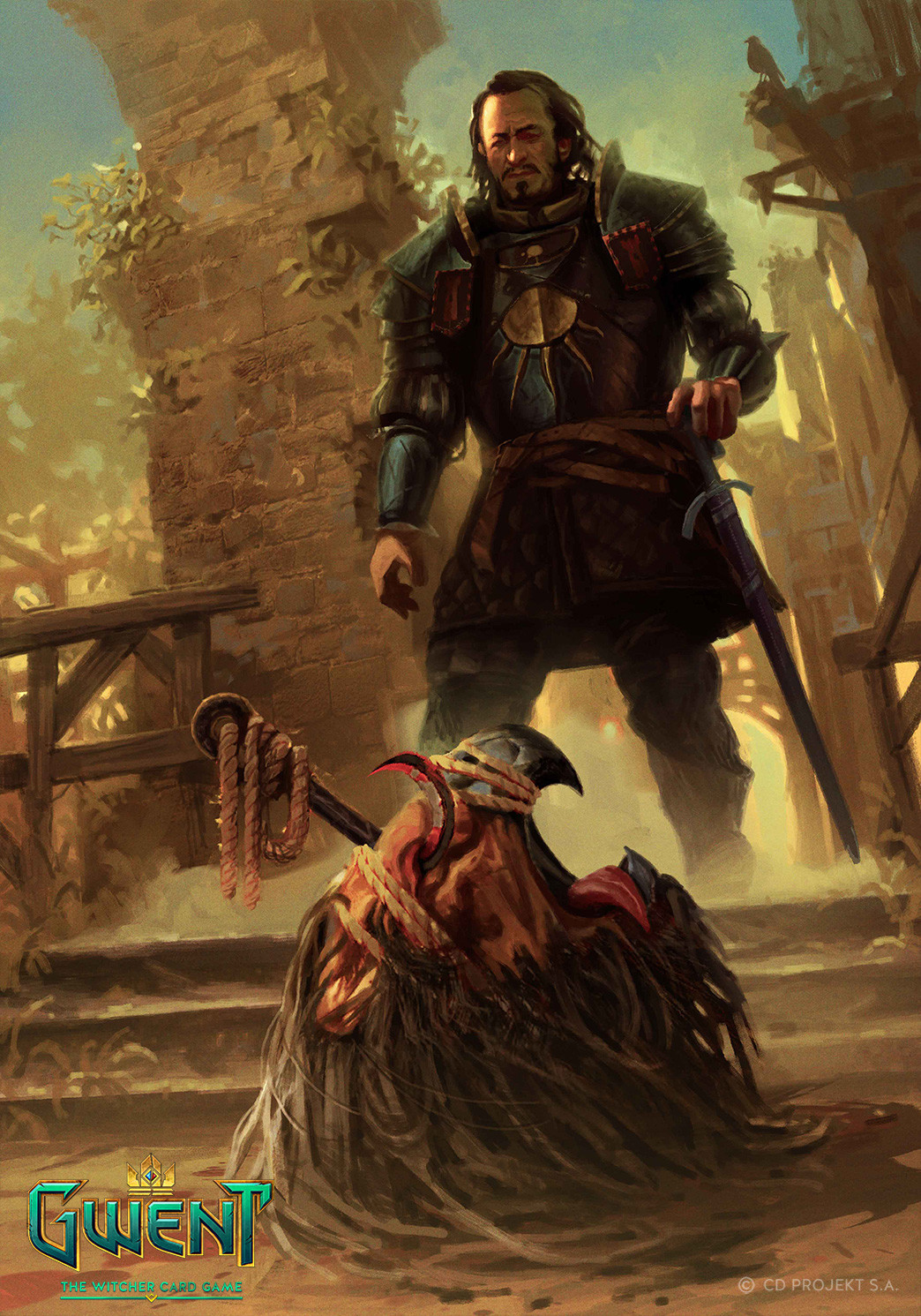


Relentless
Starting at 15th level, when you roll initiative and have no more remaining vigor points, you regain one vigor point.
Superior Mutagens
Your body strengthens as a result to the prolonged exposure to the mutagens. When you reach 18th level, you can expend one vigor point to choose to ignore the side effect of one formula affecting you for 1 minute from the Alchemical Adept feature. In doing, so you suffer one level of Exhaustion (as described in Conditions) after the duration of this feature ends.
Grandmaster
You have become the greatest among hunters. When you reach 20th level, you gain the following benefits:
- At the start of each of your turns, you can choose to end one harmful condition (no action needed) by expending one vigor point (Not including Exhaustion).
- Attacks of opportunity against you are done so with disadvantage.
- Any creature with the same name as one you've slain before takes an additional 1d6 damage from your weapon attacks. (Work with your GM to determine which creatures you have already slain previously. A spreadsheet may be useful to keep track of this feature.)
Witcher Schools
All schools of the witchers come from a single origin, but due to conflict and disagreement, several philosophies branched out as a result. Some school focus on specific alchemical benefits, others on martial prowess, and others lean toward brutality as a means to an end. Whatever school you belong to, you will be recognized as a witcher.
School of the Bear
The school of the bear is known widely in the north and along the Skellige isles. Taken to the harsh conditions of the mountains, bears are often known for their isolation, and unlikely attitude towards traveling with companions. Hardy and furious like that of their namesake, witchers of the bear are without a doubt formidable warriors. Though, some who are aware of the the school know they have fallen from grace due to a failure to complete a contract to eliminate a cabal of vampires. Many bears, or also known as ursine, still carry this shame.
| Witcher Level | Feature |
|---|---|
| 1 | Bonus Proficiencies, Hardy |
| 6 | Hibernationalist |
| 9 | Unwavering |
| 14 | Greater Resilience |
| 17 | Thick Hide |
Bonus Proficiencies
When you choose this school at 1st level, you gain proficiency with medium and heavy armor.
Hardy
Starting at 1st level, whenever you finish a long rest, you can choose to gain resistance to one of the following non-magical damage types: slashing, bludgeoning, or piercing.
You also gain resistance to cold damage due to your upbringing in the harsh mountains of the north, and a climbing speed of 30 feet.
Finally, your hit point maximum increases by 1, and it increases by 1 every time you gain a level in the witcher class.
At 14th level, you gain resistance to magical damage from your choice of slashing, bludgeoning, or piercing after finishing a long rest.
Hibernationalist
When you reach 6th level, whenever you expend one of your witcher hit dice to regain health during a short rest, you can add your Wisdom modifier to the total (minimum of + 1).
Unwavering
When you reach 9th level, you gain immunity to the frightened condition.
Additionally, you can reroll a saving throw that you fail. If you do so, you must use the new roll, and you can’t use this feature again until you finish a long rest.
Greater Resilience
When you reach 14th level, as a bonus action, you can expend one vigor point to roll your martial die. Add your Constitution modifier to the number rolled. You gain temporary hit points equal to this number.
You can use this feature a number of times equal to your Wisdom modifier (minimum of 1). You regain all expended uses once you complete a long rest.
Thick Hide
When you reach 17th level, when you take damage, you can use your reaction to expend one vigor point to roll a your martial die. Add the number rolled to your AC for that attack, potentially causing the attack to miss you.
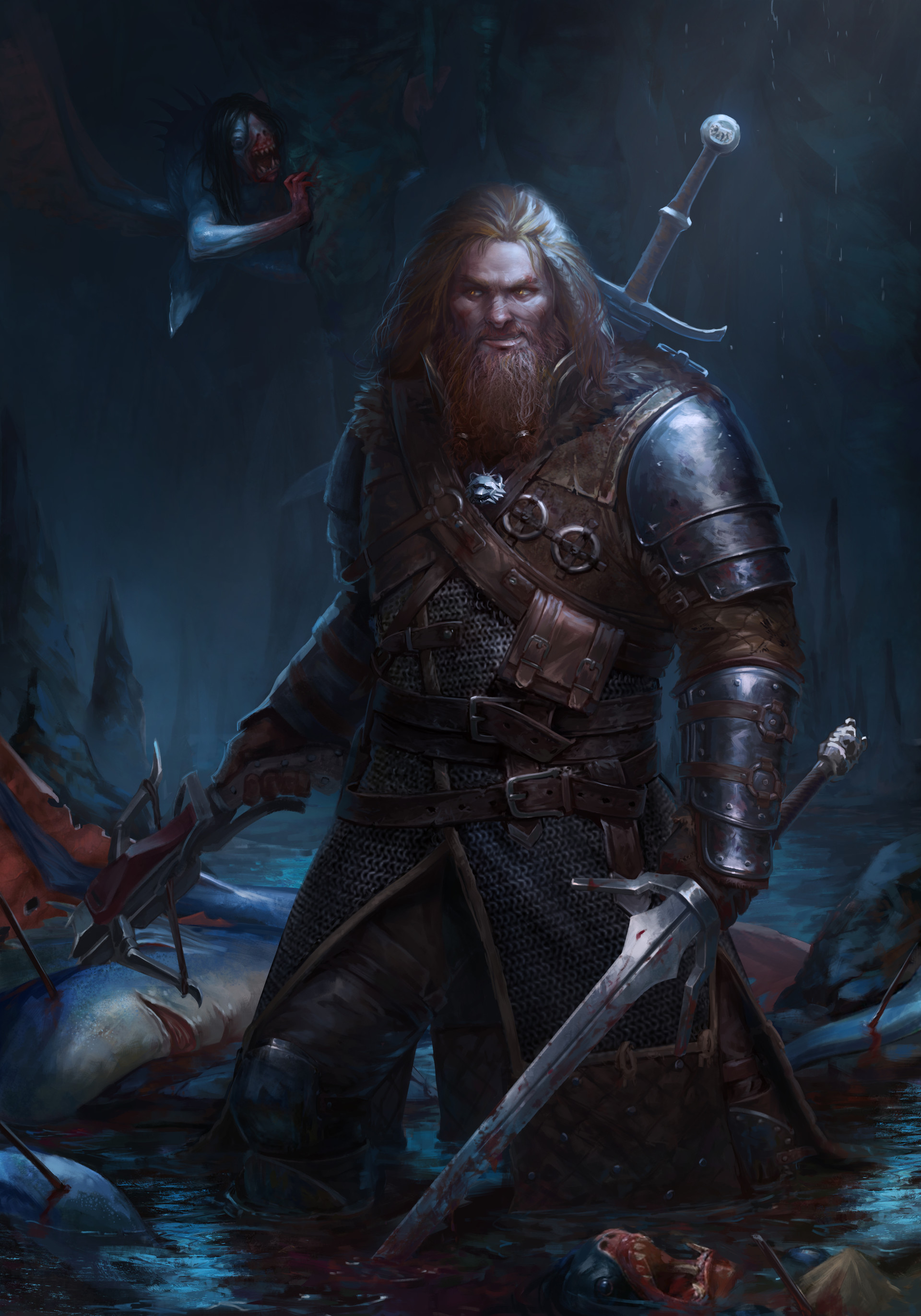


School of the Cat
The school of the cat origins are mixed, and not well accounted for. Often more active in politics and even hired as assassins, felines have evolved over the centuries in numerous ways that separate themselves apart from other schools. Known to be the first to train women, the felines have even altered their own alchemical formula in the creation process of new witchers. This formula, rather than stripping them of emotions, has caused them to become intensified. Feared among nobility, witchers belonging to the school of the cat are considered to be among the most dangerous, and unstable, of their breed.
| Witcher Level | Feature |
|---|---|
| 1 | Bonus Proficiencies, Graceful |
| 6 | Expertise |
| 9 | Evasion |
| 14 | Flick of the Blade |
| 17 | Cat's Claw |
Bonus Proficiencies
When you choose this school at 1st level, you gain proficiency with the disguise kit and the thieves' tools.
Graceful
Starting at 1st level, your actions in the shadows are without compare. While in darkness or dim light, you make any Dexterity checks with advantage.
In addition, your walking speed increases by 10 feet.
You do not gain either of these benefits if you don medium or heavy armor.
Expertise
At 6th level, choose two more of your skill proficiencies, or one more of your skill proficiencies and your proficiency with thieves’ tools. Your proficiency bonus is doubled for any ability check you make that uses either of the chosen proficiencies.
Evasion
Beginning at 9th level, you can nimbly dodge out of the way of certain area effects, such as an ancient red dragon’s fiery breath or an ice storm spell. When you are subjected to an effect that allows you to make a Dexterity saving throw to take only half damage, you instead take no damage if you succeed on the saving throw, and only half damage if you fail.
Flick of the Blade
Relying on speed and precision strikes, felines are known for targeting at their prey's weak points. When you reach 14th level, your weapon attacks score a critical hit on a roll of 19 or 20. When you consume Wolf your weapon attacks score a critical hit on a roll of 18-20.
Cat's Claw
You have become a master of striking your opponents when their backs are turned. When you reach 17th level, while flanking an opponent that's engaged with another ally of yours thats within 5 ft of that target and is opposite to you, after hitting a target with a weapon attack, whenever you expend a vigor point to roll your martial die as part of a maneuver, you can roll your martial die’s damage dice twice and add them together (see the Dungeon Master’s Guide Optional Flanking Rule on pg. 251).

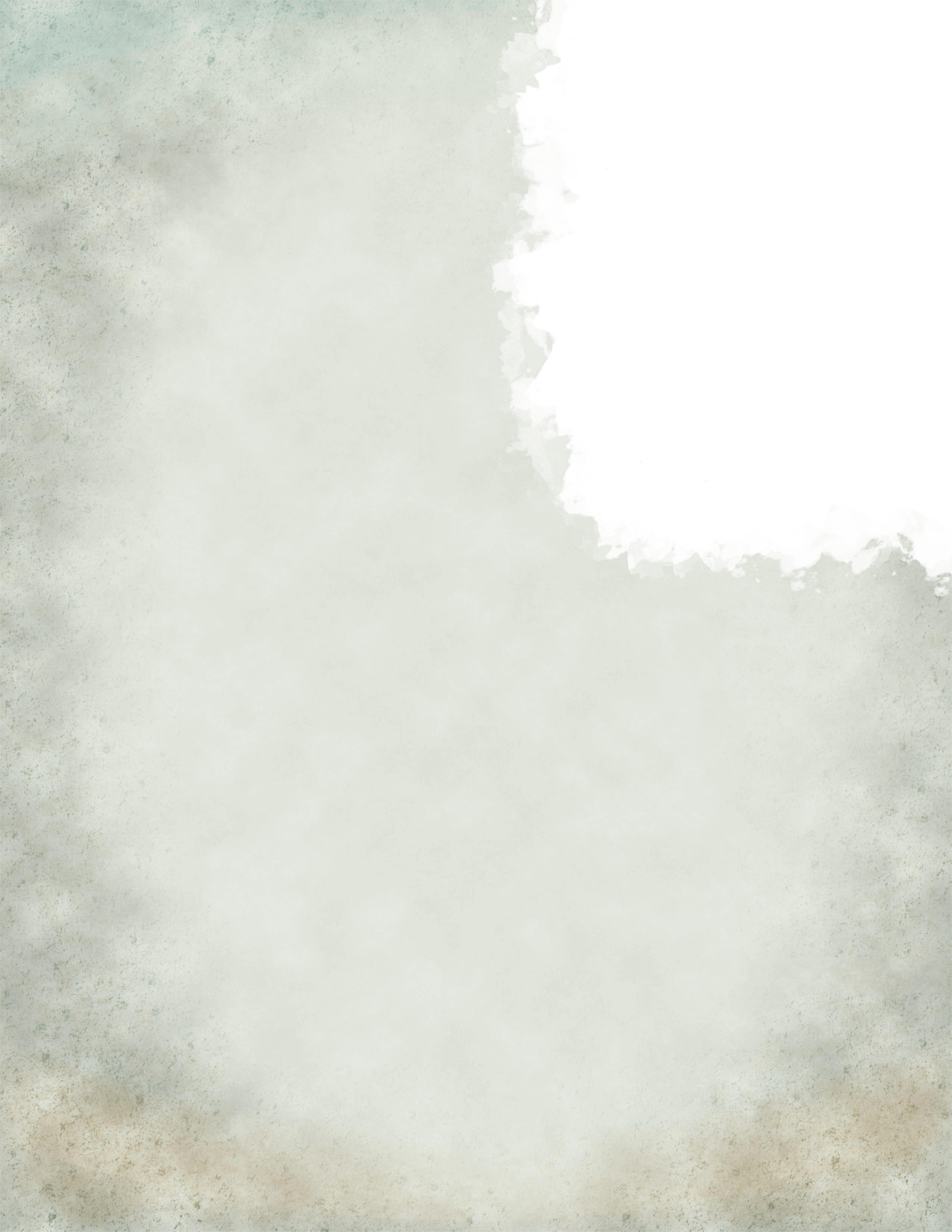
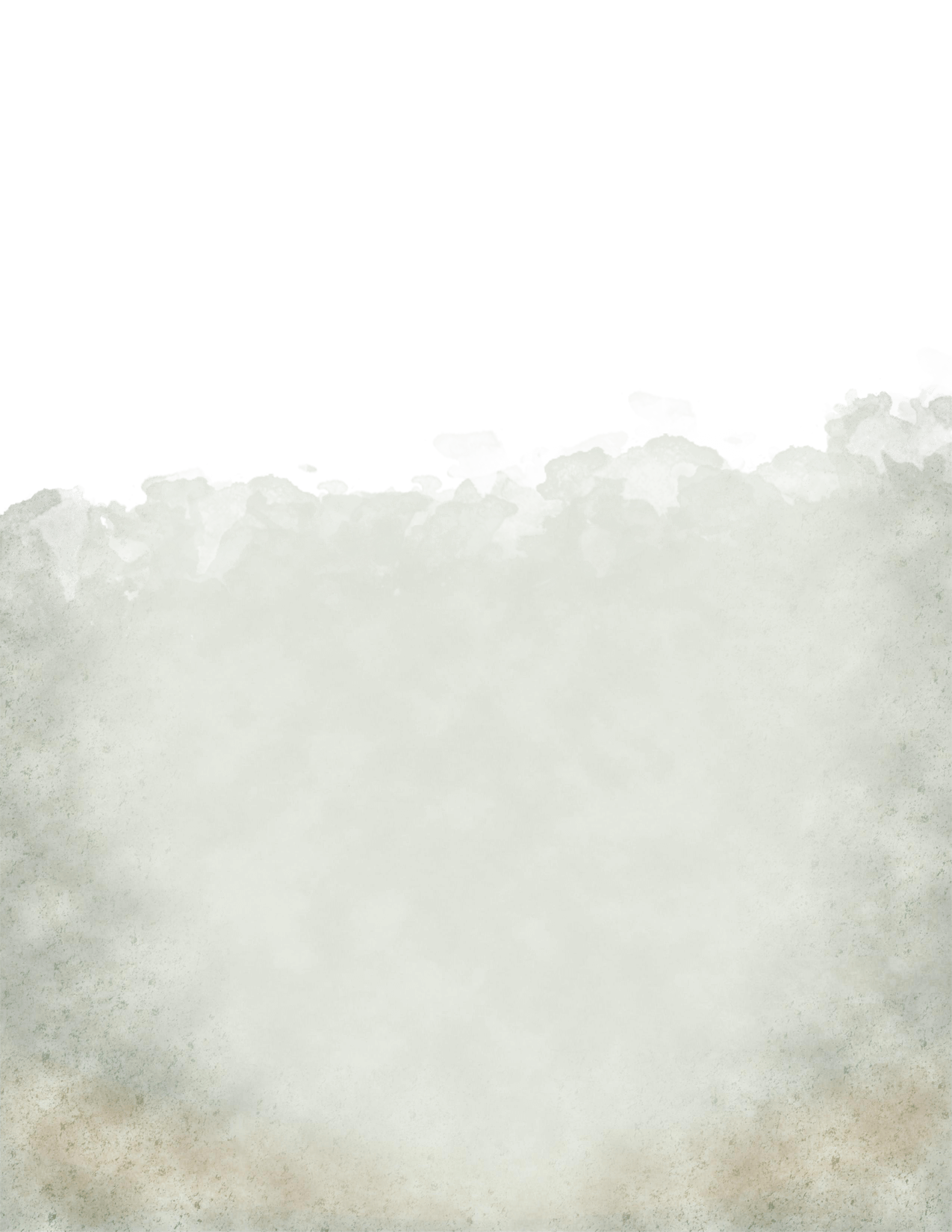
School of the Griffin
Known as the most studious of the schools, griffins are accounted as the most well-versed in social etiquette, knowledge, and that of magic. Remaining true to the original knightly values of the witcher order, griffins are considered palpably more pleasant than some of their counterparts. With a focus on studying their prey, as well as their reliance on signs, this leaves a school of the griffin witcher as a foe not to be trifled with on the battle field or in open debate.
| Witcher Level | Feature |
|---|---|
| 1 | Bonus Proficiencies, Studious Hunter |
| 6 | Improved Signs |
| 9 | Knightly Eloquence |
| 14 | Greater Signs |
| 17 | Superior Signs |
Bonus Proficiency
When you choose this school at 1st level, you gain proficiency in one of the following skills of your choice: History, Persuasion, or Religion. Alternatively, you learn one language of your choice. You also gain proficiency with medium armor.
Studious Hunter
Having spent much time within the halls of the great library of Kaer Seren, you've gain greater knowledge on dealing with creatures you will hunt.
Starting at 1st level, when you take a long rest, you can spend a portion of your time relearning what you've been taught with dealing with certain creatures. At the end of a long rest, choose one creature type: aberrations, beasts, celestials, constructs, dragons, elementals, fey, fiends, giants, monstrosities, oozes, plants, or undead. You must make an Intelligence (History) check of a DC of 15 minus your Wisdom modifier. Upon success, until your next long rest, weapon attacks against your chosen enemy type deal an additional 1d4 damage.
Improved Signs
Years of training to master the art of casting spells as signs has given you an impressive array of abilities. When you reach 6th level, when you cast a sign that requires an expenditure of at least two vigor point and deals damage, you can expend an additional vigor point and roll your martial die and add that to the total damage roll of that spell against one of its targets. (Does not count against your Maximum Vigor Points for a Sign limit.)
Knightly Eloquence
Your recognition as a member of the school of the griffin is often immediate. Being known as one offers certain benefits. When you reach 9th level, whenever you make a Charisma check, you can expend a vigor point in order to roll your martial die and add that to your total.
Additionally, determine a preferred gender, that being male or female. Whenever you make a Charisma (Persuasion) check with a non-monsterous humanoid member of this gender, you do so with advantage.
Greater Signs
You've developed your talents in magic into refined skills. When you reach 14th level, you can cast one spell of 3rd-level or lower without expending the required number of vigor points (maximum of 4).
Once you use this feature, you can't use it again until you finish a long rest.
Superior Signs
Your ability to cast magical signs is unrivaled by other witchers. When you reach 17th level, you gain the ability to cast 5th-level spells that require you to expend 6 vigor points in order to produce.
You can cast one sign up to 5th-level, once you use this feature, you can't use it again until you finish a long rest.
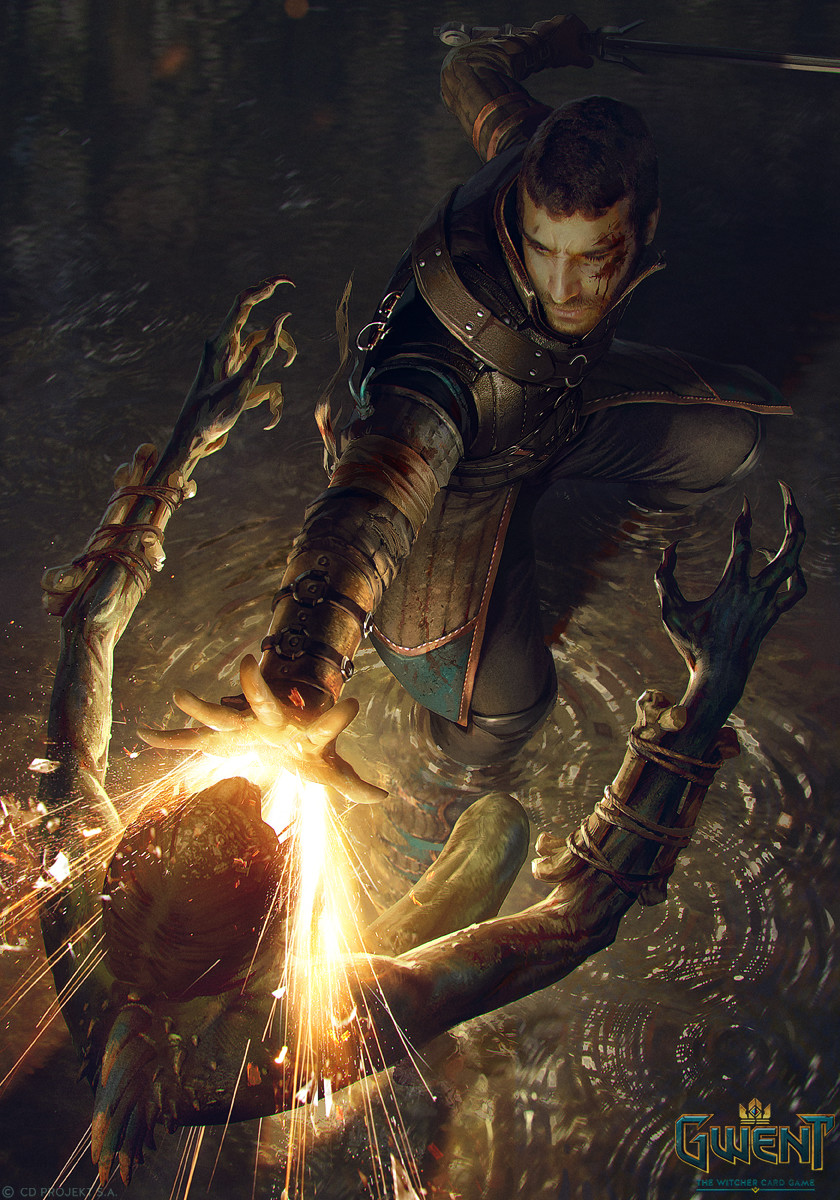


School of the Manticore
Considered perhaps the most obscure branch of the Order of the Witcher, the school of the manticore seeks greater understanding of the mutations within themselves. Their study has often led them to both great advances, and terrible tragedy. Members of this school seek our the rarest ingredients for their alchemical concoctions; be it from flora or fauna.
| Witcher Level | Feature |
|---|---|
| 1 | Bonus Proficiencies, Fortitude |
| 6 | Harvester |
| 9 | Expert Alchemist |
| 14 | Dangerous Alchemy |
| 17 | Iron Gut |
Bonus Proficiencies
At 1st level, you gain proficiency with medium armor, as well as you gain proficiency with the Herbalism kit.
Fortitude
At 1st level, your mutagens grants you immunity to disease.
Harvester
When you reach 6th level, your training in dissection and the collection of organic materials from your prey can be used as additives to your alchemical formulas. Stronger and more exotic creatures yield a greater likelihood for ingredients, but all things come at a price. You can exhume and dissect a number of corpses in the size chart below per your Wisdom modifier (minimum of 1). Dissection requires an hour of uninterrupted work in order to harvest usable materials from your subjects. Larger creatures may require a greater number of hours to complete the task.
| Creature Size | Number of Creatures |
|---|---|
| Tiny, Small | 2 x WIS Modifier |
| Medium | 1 x WIS Modifier |
| Large | 0.5 x WIS Modifier |
| Huge, Gargantuan | 0.2 x WIS Modifier |
The challenge rating (CR) of the subjects yields a percentage of possibility for extracting usable material. Roll for the percentage for each creature that you are harvesting. Any successful organic materials that you harvest last for 24 hours. After that, they are no longer usable for this feature.
| CR | Percentage |
|---|---|
| 0-5 | 85-00 |
| 6-10 | 50-00 |
| 11-15 | 25-00 |
| 16-19 | 15-00 |
| 20-22 | 10-00 |
| 23+ | 01-00 |
Upon a successful harvest, roll a d4. The number on the die yields the result listed below. You can choose to then apply this result to the next time you consume one of your formulas. Refer to the DMG pg. 219-221 for the tables. Substitute 'When attuned to the artifact' with 'After consumption of the formula'. When consumed, roll on the listed tables as from the listed outcome of the d4 and apply it with the other effects of your chosen formula. The results of this feature last for the duration of the formula. Your GM can choose to reroll any of the properties should they not be logical in how they would manifest, or they can roll on the Sorcerer's Wild Magic Surge table.
| d4 | Outcome |
|---|---|
| 1 | Minor Beneficial Property, Minor Detrimental Property |
| 2 | Major Beneficial Property, Minor Detrimental Property |
| 3 | Minor Beneficial Property, Major Detrimental Property |
| 4 | Major Beneficial Property, Major Detrimental Property |
Expert Alchemist
When you reach 9th level, you can craft an additional formula potion during a long rest, as well as you learn two additional formulas that you know from the Alchemist Adept class feature.
Dangerous Alchemy
Your specific mutations as a member of the school of the griffin allows you the ability to gain the benefits of multiple formulas at once. When you reach 14th level, you can consume any number of formula potions that you can craft during a long rest and receive both the benefits and side effects of those formulas. You cannot gain the benefits of the same formula twice, but you can worsen a side effect, such as if an ability score is decreased. Consuming the same formula portion doubles that side effect penalty, if applicable.
Iron Gut
When you reach 17th level, your ability to endure the toxicity of your alchemical formulas has increased. After consuming three formula potions, you can expend 3 vigor points in order to make a Constitution saving throw of DC 17. Upon success, choose one side effect to ignore for the formula's duration (1 hour).
Once you use this feature, you can't use it again until you finish a long rest.
School of the Wolf
Counted as the most recognizable, as well as renown of the schools, the wolves have taken their place in history as some of the greatest witchers to have ever been created. Reliable, professional, and always for a price, these witchers are often the ones townsfolk think of when they heard the name. Either working in pairs, small teams, or even alone, the witchers of the school of the wolf are always capable of felling whatever evil besets them.
| Witcher Level | Feature |
|---|---|
| 1 | Bonus Proficiencies, Silver for Monsters |
| 6 | Increased Vitality |
| 9 | Additional Fighting Style |
| 14 | Uncommon Resolve |
| 17 | Wolven Storm |
Bonus Proficiencies
When you choose this school at 1st level, you gain proficiency with medium armor, additionally, you can use either your Dexterity or Constitution modifier to determine the bonus to your AC while wearing medium armor.
Silver for Monsters
Starting at 1st level, whenever you strike a non-humanoid, non-bestial, or non-construct creature type with a silvered weapon, the target takes an additional 1d4 damage.
Increased Vitality
Your mutagenic advances grants you superior healing when your mediate or rest. When you reach 6th level, you can expend a vigor point when you expend one of your witcher hit dice during a short rest in order to regain additional hit points. Roll your witcher hit die and your martial die and add them together as well as your Constitution modifier. You regain hit points equal to that total.
You can use this feature a number of times equal to your Wisdom modifier (minimum of 1). You regain all expended uses once you complete a long rest.
Additional Fighting Style
At 9th level, you can choose a second option from the Fighting Style class feature.
Uncommon Resolve
When you reach 14th level, any time you are subjected to a saving throw that requires a roll, you can expend one vigor point and roll your martial die. Add the number rolled to your total for that save.
Additionally, you can spend one vigor point to grant your next weapon attack advantage.
You can use this feature a number of times equal to your Wisdom modifier (minimum of 1). You regain all expended uses once you finish a long rest.
Wolven Storm
When you reach 17th level, you have mastered the way of the Path. As a bonus action, you can spend 5 vigor points to gain resistance to all damage types for the next minute, or until you fall unconscious.
Once you use this feature, you can't use it again until you finish a long rest.
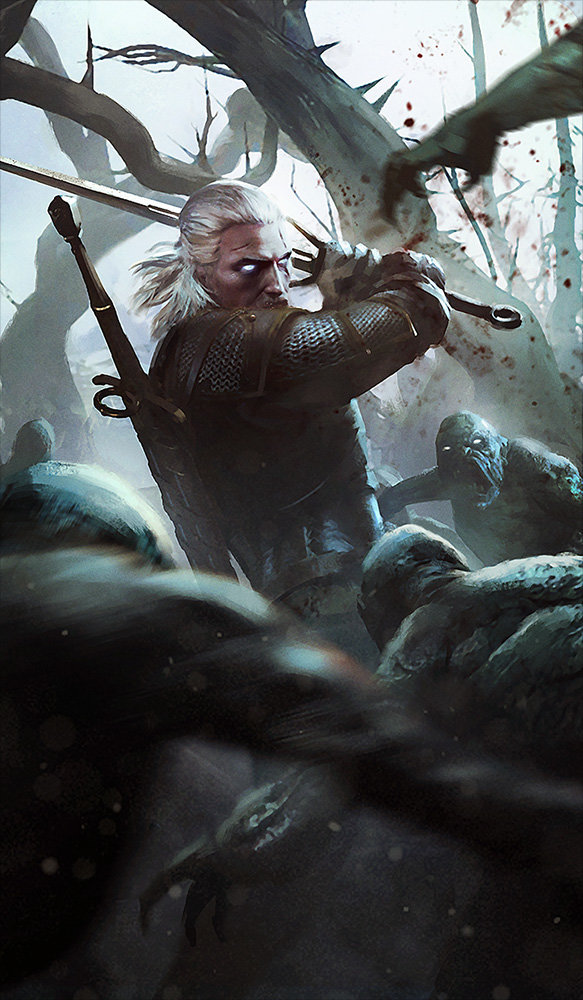


School of the Viper
Far-flung to the distant south, this sect of witchers is considered the most secretive and least understood, even by other witchers. Though today, they are scattered and exiled from most kingdoms. Used as assassins, and then set upon by their employer, the emperor of Nilfgaard, these witchers have known the scorn of the world. Unpredictable and stealthy, vipers are only ever seen in the last moments before they strike.
| Witcher Level | Feature |
|---|---|
| 1 | Bonus Proficiencies, Twin Fangs |
| 6 | Slithering Escape |
| 9 | Dodge |
| 14 | Venomous |
| 17 | Swift Strike |
Bonus Proficiencies
At 1st level, you gain proficiency in the Deception skill, as well as you gain proficiency with the Poisoner's kit.
Twin Fangs
Your school's training with lighter and smaller weapons grants you greater talents, even that of dual wielding. Starting at 1st level, when you engage in two-weapon fighting, you can add your ability modifier to the damage of the second attack if you are only holding light weapons that have the finesse property.
Slithering Escape
When you reach 6th level, you can expend one vigor point to allow yourself to take the disengage or dodge action as a bonus action on your turn.
Dodge
Starting at 9th level, when an attacker that you can see hits you with an attack, you can expend one vigor point to use your reaction to halve the attack’s damage against you. You do not gain the benefit of this feature if you don medium or heavy armor.
Venomous
Poisons are a part of the trade in which you employ. When you reach 14th level, during short or long rests, you can coat one or more of your weapons with a poison (maximum of 2). When you strike a creature with one of your coated weapons, you can expend one vigor point to force the target to make a Constitution saving throw against your Sign save DC. Upon failure, roll your martial die. They target takes poison damage equal to the number rolled and is poisoned for the next minute. At the end of each of the target's turns, it can remake this save to end its effects early.
Once you use this feature, you can't use it again until you complete a long rest per weapon that is coated.
Swift Strike
When you reach 17th level, once on each of your turns when you take the attack action on your turn, you can expend one vigor point to make an additional weapon attack with a light weapon that has the finesse property.
You can use this feature a number of times equal to your Wisdom modifier (minimum of 1). You regain all expended uses once you complete a long rest.


Multiclassing Requirements
On the GM's discretion, you can multiclass in the witcher class, as described in the Player's Handbook pg. 163-165. If you do so, the following rules are applied.
Prerequisites
To qualify for the witcher class, you must meet the ability score prerequisites for the witcher class, as shown in the table below.
Multiclassing Prerequisites
| Class | Ability Score Minimum |
|---|---|
| Witcher | Dexterity or Strength 13 and Wisdom 13 |
Proficiencies
When you multiclass into the witcher class, you gain the following proficiencies as shown in the table below.
Multiclassing Proficiencies
| Class | Proficiencies Gained |
|---|---|
| Witcher | Simple weapons, martial weapons, one skill from the class's skill list |
Witcher Spelllist by Level
Cantrips (0 Level)
- Aard
- Axii
- Igni
- Quen
- Yrden
1st Level
- Absorb Elements (Quen)
- Animal Friendship (Axii)
- Burning Hands (Igni)
- Catapult (Aard)
- Charm Person (Axii)
- Earth Tremor (Yrden)
- Entangle (Yrden)
- Hellish Rebuke (Igni)
- Shield (Quen)
- Thunderwave (Aard)
2nd Level
- Aid (Quen)
- Calm Emotions (Axii)
- Gust of Wind (Aard)
- Magic Aura (Yrden)
- Scorching Ray (Igni)
3rd Level
- Fireball (Igni)
- Hypnotic Pattern (Axii)
- Protection from Energy (Quen)
- Slow (Yrden)
- Wall of Wind (Aard)
4th Level
- Confusion (Axii)
- Fire Shield (Igni)
- Private Sanctum (Yrden)
- Resilient Sphere (Quen)
- Storm Sphere (Aard)
5th Level (Griffin Only)
- Antilife Shell (Quen)
- Dominate Person (Axii)
- Hallow (Yrden)
- Immolation (Igni)
- Telekinesis (Aard)
Spells by Sign
Aard
- Catapult
- Gust of Wind
- Storm Sphere
- Thunderwave
- Telekinesis
- Wall of Wind
Axii
- Animal Friendship
- Calm Emotions
- Charm Person
- Confusion
- Dominate Person
- Hypnotic Pattern
Igni
- Burning Hands
- Fireball
- Fire Shield
- Hellish Rebuke
- Immolation
- Scorching Ray
Quen
- Absorb Elements
- Aid
- Antilife Shell
- Protection from Energy
- Shield
Yrden
- Earth Tremor
- Entangle
- Hallow
- Magic Aura
- Slow



Sign Descriptions
Signs are presented in alphabetical order.
Aard
Evocation cantrip
- Casting Time: 1 action
- Range: Self
- Components: V, S
- Duration: Instantaneous
You focus a powerful telekinetic blast to push back enemies, or even break weakened structures. You can create one of the following effects:
- One Medium or smaller creature that you choose must succeed on a Strength saving throw or be pushed up to 5 feet away from you and is knocked prone.
- You can push a number of objects within a 10-foot cone of you that are neither held nor carried and that weighs no more than 5 pounds. An object is pushed up to 10 feet away from you.
- Weaken structures or walls that are no greater than six inches thick can be broken. Walls and structures take 1d6 force damage upon impact. (Creatures are immune to this damage.)
This sign's damage to structures increases by 1d6 when you reach 5th level (2d6), 11th level (3d6), and 17th level (4d6).
Axii
Enchantment cantrip
- Casting Time: 1 action
- Range: 30 feet
- Components: V, S
- Duration: Concentration, up to 1 minute
You attempt to charm the mind of a creature, be it friend or foe. A nonhostile creature must make a Charisma saving throw against your Sign save DC or becomes charmed by you. A creature is charmed by you until the spell ends or until you or your companions do anything harmful to it. The charmed creature is friendly to you. When the spell ends, the creature knows it was charmed by you. While charmed, you have advantage on all Charisma checks directed at one creature of your choice.
A hostile creature targeted by this spell must make a Charisma saving throw with advantage against your Sign save DC or is charmed by you for the duration. At the start of each of its turns, an affected target can make a Charisma saving throw. If it succeeds, this effect ends for that target.
Igni
Evocation cantrip
- Casting Time: 1 action
- Range: 10-foot cone
- Components: V, S
- Duration: Instantaneous
You produce a burst of flames from your fingertips. Each creature in a 10-foot cone must make a Dexterity saving throw. A target must succeed on a Dexterity saving throw or take 1d6 fire damage.
You can also harmlessly extinguish or ignite a flame, such as a candle, a torch or a campfire.
This sign’s damage increases by 1d6 when you reach 5th level (2d6), 11th level (3d6), and 17th level (4d6).
Quen
Abjuration cantrip
- Casting Time: 1 action
- Range: Self
- Components: V, S
- Duration: Concentration, 1 minute
You invoke the power of your sign to shield you from harm. The next time you take damage before the spell ends, roll a 1d4 and subtract that from the total.
The damage reduced by this sign increases by 1d4 when you reach 5th level (2d4), 11th level (3d4), and 17th level (4d4).
Yrden
Conjuration cantrip
- Casting Time: 1 action
- Range: Self (10-foot radius)
- Components: V, S
- Duration: Concentration, 1 minute
You strike the ground beneath your feet and leave a glowing purple sigil, slowing your enemies within. You create a 10-foot radius circle beneath you along the ground. For the duration, this area is considered difficult terrain for all hostile creatures to you.
Hostile creatures that start their turns in this area must make a Dexterity saving throw or take 1d4 force damage.
This sign's damage increases by 1d4 when you reach 5th level (2d4), 11th level (3d4), and 17th level (4d4).
Appendix A: Magic Items
Witcher Armor
Wondrous (any) armor, rare - legendary This exquisite armor that was designed for the purpose of protecting a witcher from harm. It is crafted in a manner that allows the addition of a number of magical glyphs to be placed in it that it increase its strength for a worthy witcher.
Once a glyph is placed inside a set of witcher armor it gains a +1 to its AC per glyph, as well as it is considered magical.
Witcher Medallion
Wondrous item, very rare (requires attunement)
This finely crafted silver necklace acts as both symbol and as a protective charm for witchers. The appearance of this medallion takes the form of the head of the school of the witcher which this was crafted for. While useful for the detection of magic and for monsters, some creatures seem aloof of its abilities.
While attuned to this necklace, you can cast detect magic at-will.
A witcher that is attuned to this item can use an action to focus their attention to their surrounds. You can see the faint outline of any non-humanoid creature within 30 feet of you until the start of your next turn.
Witcher Silver Longsword
Wondrous (longsword) weapon, rare - legendary
This masterfully crafted longsword was designed with the intention of magical runes to be placed on it. Tempered with the proper alloys, this blade can bear a number of magical runestones that will increase its strength for a worthy witcher. This weapon is silvered for the purpose of overcoming resistance or immunity to mundane weapons.
Once a runestone is placed inside of a witcher silver longsword, it gains a +1 to attack and damage rolls per runestone, as well as it is considered magical for the purpose of overcoming resistance. Should you have more than one runestone placed in this item, you choose which addition damage is dealt (limit of one die per turn).
Witcher Steel Longsword
Wondrous (longsword) weapon, rare - legendary
This masterfully crafted longsword was designed with the intention of magical runes to be placed on it. Tempered with the proper alloys, this blade can bear a number of magical runestones that will increase its strength for a worthy witcher.
Once a runestone is placed inside of a witcher steel longsword, it gains a +1 to attack and damage rolls per runestone, as well as it is considered magical for the purpose of overcoming resistance. Should you have more than one runestone placed in this item, you choose which addition damage is dealt (limit of one die per turn).
Glyphs and Runestones
Wondrous item, very rare.
Runestones are magical enchantments that can be placed in specially crafted weapons. Glyphs are only able to be placed on armor. Placing a glyph or runestone in a witcher item is permanent. An item that can have glyphs or runestones placed in it will allow for a number of glyphs or runestone slots, as listed in its description. No other items can use glyphs or runestones in this manner. Lesser runestones deal 1d4 damage, regular runestones deal 1d6 damage, and greater runestones deal 1d8 damage.
Chernobog. Weapon: You deal extra force damage the first time you hit a target once per turn.
Dazhbog. Weapon: You deal extra fire damage the first time you hit a target once per turn.
Morana. Weapon: You deal extra poison damage the first time you hit a target once per turn.
Zoria. Weapon: You deal extra cold damage the first time you hit a target once per turn.
Glyph of Aard. Armor: Your aard cantrip push distance is increased to 10 feet against Medium or smaller creatures, or can push one Large creature 5 feet but not knocked prone.
Glyph of Axii. Armor: Your axii cantrip affects the minds of charmed creatures to defend you and will attack targets that are hostile to you, up to a CR of one quarter of your witcher level.
Glyph of Igni. Armor: Your igni cantrip's damage die turns into a d8.
Glyph of Quen. Armor: Your quen cantrip damage reduction die turns into a d6.
Glyph of Yrden. Armor: Your yrden cantrip damage die turns into a d6.
| Witcher Item Rarity | Glyph or Runestone Slots |
|---|---|
| Rare | 1 |
| Very Rare | 2 |
| Legendary | 3 |
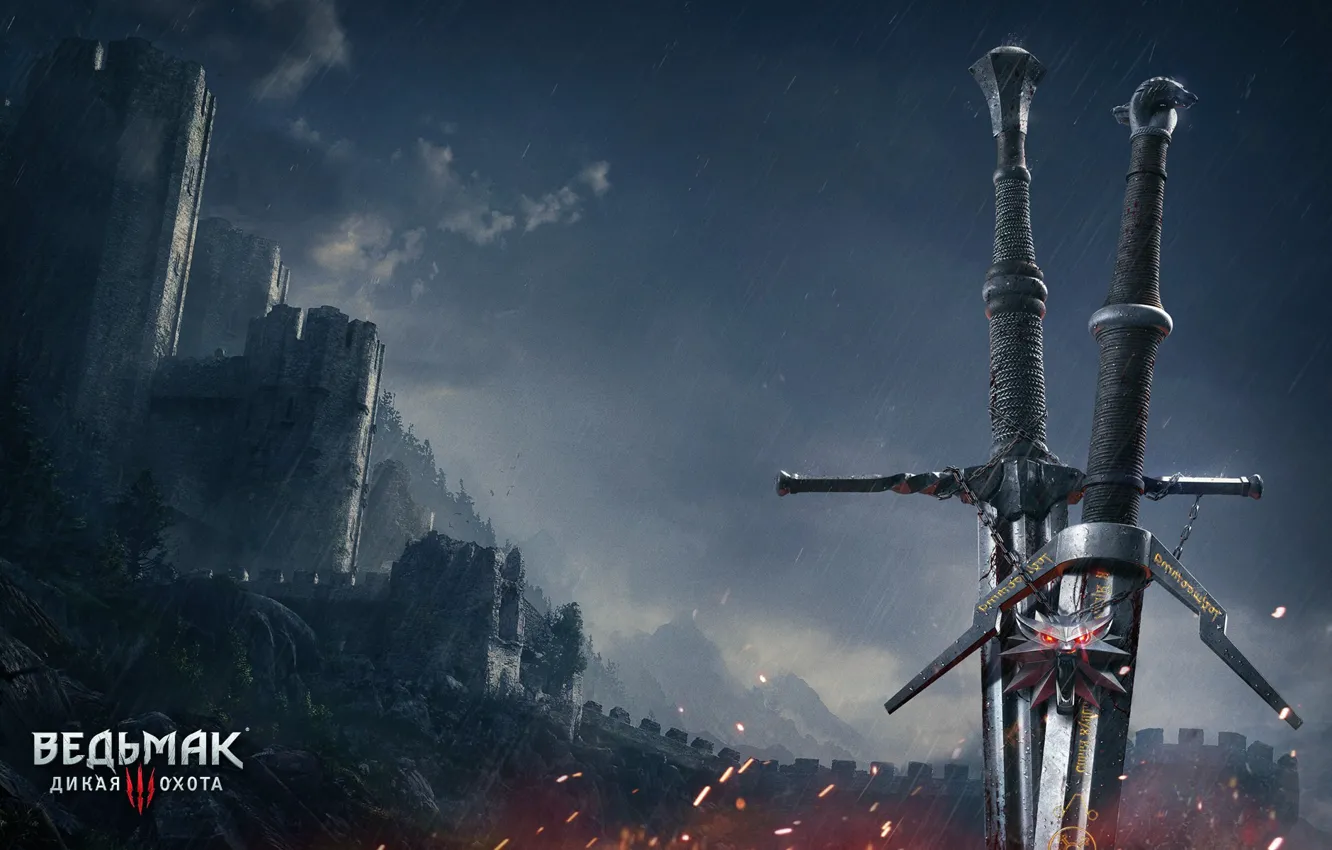



Appendix B: Monsters
- Alghoul
- Drowner
- Chort
- Foglet
- Hym
- Leshen
- Nekker
- Nightwraith
- Rotfiend
- Vampires
- Alp
- Bruxa
- Ekimma
- Fleder
- Garkain
- Katakan - Water Hag
- Wild Hunt
- Captain
- General
- Hound
- King
- Navigator
- Rider
- Warrior
Change Log
4/3/20 - v1.0.0
- First Release
4/4/20 - v1.0.1
- Corrected typos for spell casting times.
- Balanced axii & quen.
- Replaced DEX saving throw proficiency with STR.
- Added change log page.
4/28/20 - v1.0.2
- Changed 'Adapt' to 'Adept'.
- Noted an issue for School of the Cat's image not appearing on mobile viewing. Issue not found on PC viewing.
5/12/202 - v.1.0.3
- Changed image from School of the Cat: EACLE
5/14/20 - v1.0.4
- Corrected Yrden's last paragraph.
- Removed the At Higher Levels. notation from the signs to mirror standard cantrips.
5/15/20 - v1.0.5
- Reformated footer text to accredit artwork by artists. Some work has been difficult to track down as the its original creator. Will attempt to fix the color issue on the footer to appear darker.
5/15/20 - v1.0.6
- Corrected a typo in the Signs section, and removed the vigor cost of casting cantrips.
12/09/21 - v1.0.7
- Corrected formating so pages will display correctly.
X/X/XX - v1.1.0
- Changed Appendix 1 to A, added Appendix B: Monsters (TBD)
Credits
Class Design:
Andrew Rowley
Version 1.0.5
Artwork:
CD Projekt Red
Gwent the Witcher Card Game
Interior Artwork:
Eleonora "Noura" Abdrakhmanova
DaveRapoza
The Witcher
Andrzej Sapkowski (author)
Front & Back Cover Art:
Disclaimer
This is unofficial Fan Content permitted under the Fan Content Policy. Not approved/endorsed by Wizards. Portions of the materials used are property of Wizards of the Coast. ©Wizards of the Coast LLC.
Feedback & Contact
For questions, inquiries, or concerns, you can reach me via email at: Coming soon
Reddit: /u/CrimsonAllah
Instagram: Coming Soon (maybe)
Discord: CrimsonAllah#0109
